We know where the river is. We can hear it. It’s just on the other side of a deep, thick stand of vegetation that stands sentinel along a run aptly named “Brushy Hell” on the McCloud. That section of the riverbank changes almost every year as winter high water flushes through, leaving behind debris fields and crowds of well-nourished bushes that grow probably eight feet around in as many months. It’s now mid-summer on the McCloud (so it’s hot with a capital “F”), I’m with my friend, Seung, and he’s in a determined mood to bushwhack into the prickly heart of the beast.
We just don’t know if what’s on the other side of all that brushy hellscape is untouched pocket water or a rapid yearning to be a waterfall. Seung is a scientist, so he plumbs the depths of the unknown and tests theories regularly. Me? I’m just a guy who usually eschews bushwhacking, but years ago decided to say “Yes” a lot more to any otherwise questionable offers and suggestions. Sometimes that’s a fault tinged with regret, but sometimes it’s a superpower.
My intrepid friend plotted a route aimed at a thicket of willows just on the other side of an enormous field of washed-up logs that looked like Odin’s kids left behind their game of pick-up sticks. We picked our way over and across the jumble of telephone-pole-sized logs and were pleasantly surprised to find a small side creek bubbling its way easily toward the river. But we weren’t a bubbly small side creek. We were two sweaty, middle-aged men with our trusty fly rods about to follow a cold trickle of water as it barely passed under and through a dense stretch of willows, each 10 to 12 feet tall.
There was some crawling and range-of-motion testing contortionism over and through branches as we wended our way forward. We leaned on branches to grant each other courteous passage. Rods were passed to one another. Small cairns were built so we could find our way back out (Seung is my clever friend). There was also a liberal amount of swearing, some of it, strangely enough, in German and Japanese. I guess my default swear words in moments of physical distress are to revert to the native languages of Axis Powers. But where did I learn German…?
It probably took us the better part of 30 minutes to travel maybe 500 feet before we finally caught a glimpse of the river peeking through some small windows in the branches and leaves. The river didn’t sound like a rapid, and the grade didn’t feel rapid-inducing. Just a few more pushes through the pokey stuff, and we popped out onto this!
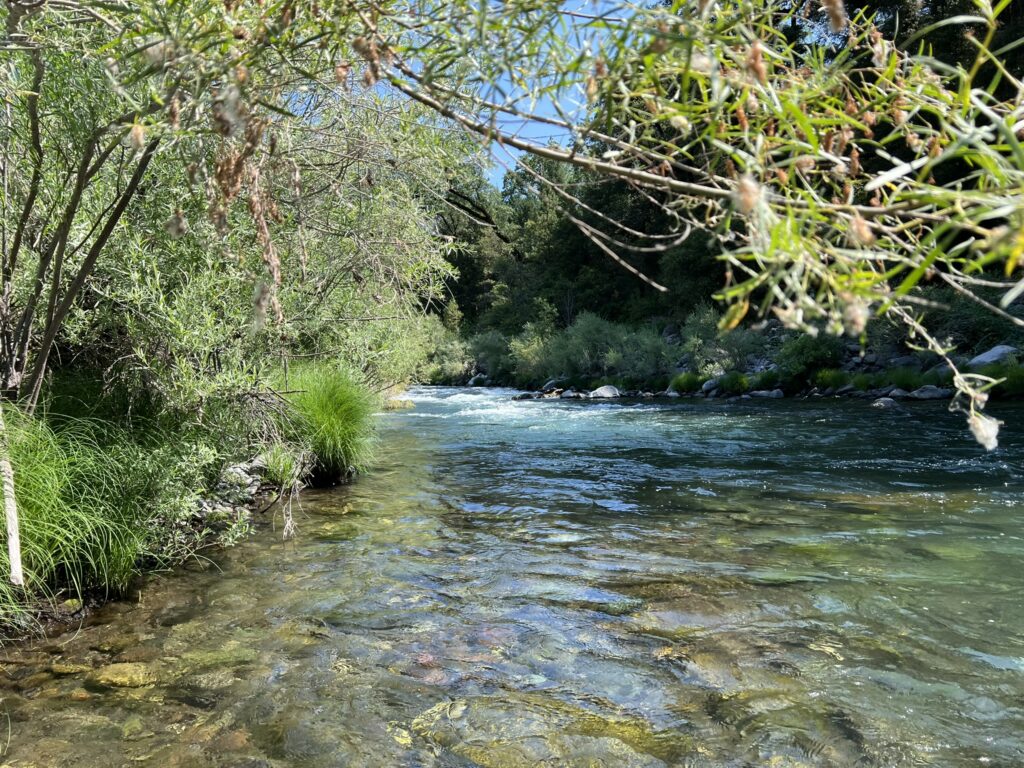
I mean, look at that. It’s picturesque like a Cialis ad. The near side offered a shallow shelf off the bank. The far side showed off cool, shaded water full of holding spots. The tailout held some pockety stuff. And best of all, it looked like water no one had touched in who knows how long.
We split up the run, and Seung caught his first fish on his very first cast. The thrill of the reward after our effort prompted him to burst into three choruses of “Battle Hymn of the Republic” (“Glory! Glory! Hallelujah!”) and two choruses of its parody (“Teacher hit me with a ruuuue-lah!”).
Me? I fished the tailout for a few casts until I gave myself a ‘spirit breaker’ of a tangle. After all that climbing, squirming, crawling, grunting, und swearing, I got myself fouled up in a Gordian Knot of 5X tippet and dangling flies that seemed determined to do a Maypole dance around anything made of fluorocarbon. I spent way too long trying to untangle, each turn making matters worse, until I sat with a harumph on a rock to cut the whole rig off. While peeling off fresh tippet to rebuild, I quietly muttered to myself, “Those stupid flies probably wouldn’t have worked in here anyway…” It was a real horror show party of pity I was throwing for myself.
Freshly rigged, but completely down, I pinned the flies to my rod and waded back up to Seung, who, upon seeing me, excitedly declared that he had caught six fish. SIX! All while I was Rainman-tying a bobber rig slowly in the driveway downstream of him like I had all the time in the world before Wapner.
I flung open the doors to my horror show pity party, falling just short of sounding like a first grader hyperventilating tears while recounting the tragedy of being pushed to the blacktop at recess.
Not only is my friend smart and super fishy, but he’s also keenly empathetic. He quickly sensed something was off with me and cautiously asked how I did downstream. I flung open the doors to my horror show pity party, falling just short of sounding like a first grader hyperventilating tears while recounting the tragedy of being pushed to the blacktop at recess (not that I’m drawing that imagery from personal experience or anything—but ask me how I got the bump on my nose if we ever meet…). “I think I’m gonna head back,” I said finally, not even trying to mask my defeat.
“Nooo!” Seung protested. “I haven’t hit the slack water on the other side of the fast water yet. Go up there and fish that!” he commanded. “There are fish in there!” To appease my friend, I sloshed my unhappy self upriver a bit and stack mended my way into the section of water Seung hadn’t yet cleaned up.
Six casts into the slack water produced four takes and one landed. “See? I told you they were in there! That was amazing!” Seung shouted at me. That hyperventilating, crying kid who wanted to go home earlier was gone, replaced by a far more satisfied and happier, still sweaty and slightly muddy, middle-aged me. And now I get to add “generous” to the list of qualities that describe my smart and empathetic fishy friend.
After another 30-ish minutes, we tied a bow on that run and decided it was time to climb back out. A bandana we tied to a tree marked the door we used to get on stage, and we backtracked our way out after missing only one turn that sent us past one of the cairns we had placed. We made it back to the car a little banged up, stained with dried mud, and elated at the adventure we just had getting into fish in unpressured water.
This recent excursion has turned me 180 degrees from my usual cautious attitude and general unwillingness to bushwhack. Now, I’ll encourage it for any intrepid angler looking for fresh adventures in unfamiliar water. Would I do anything differently or try to remember some helpful tactics for the next time? You bet!
- Transport the rod in a rod sleeve, ideally one that accommodates the rod being broken down in half. I see you Spey anglers nodding knowingly…
- Wear long sleeves and some sort of leg covering. Abrasion-resistant waders are great. If wet wading, then try quick-dry pants or even leggings under swim trunks.
- Hats and protective eyewear (e.g., sunglasses). Pushing through branches usually means you’re setting up a pokey spring-loaded impaler/scraper for anyone behind you.
- Stow anything you don’t want to lose. I lost a beloved old split-shot clamp* that was clamped on my pack on this particular excursion. I don’t know if I feel worse for having lost it or for having accidentally littered.
- Occasionally, look back to acquaint yourself with landmarks if you plan to exit the way you went in. Green bushes and trees start to look the same, and it can be easy to forget how you got into wherever it is you ended up. And if you set up cairns on your way in, remember to kick them over on your way out. Practice ‘Leave No Trace.’
I invite you to add your bushwhacking advice in the comments below. A little adventure just makes our awesome sport more awesome’r. Seung will hate that I just used “more awesome’r,” but I’m calling it: Straying from the beaten path is more awesome’r—and my new superpower.
*Big thanks to the folks at Dr. Slick in Belgrade, MT, for helping me replace that beloved pair of shot clamps I lost.



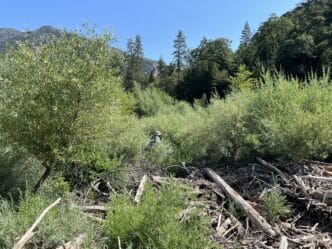
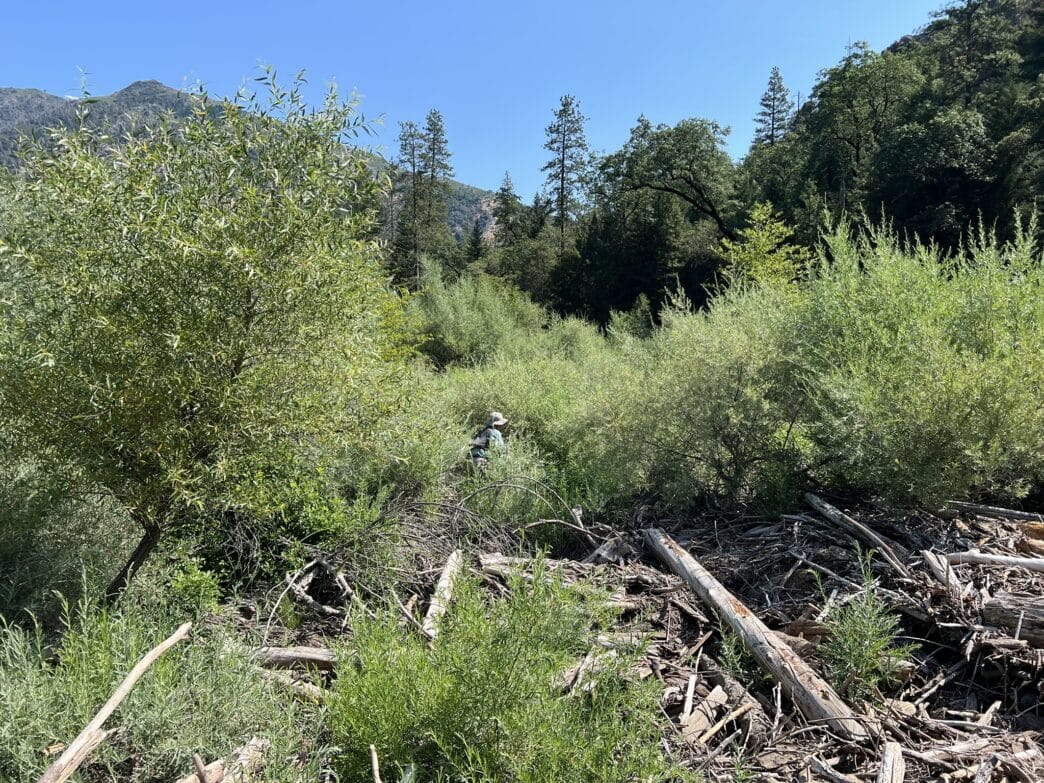
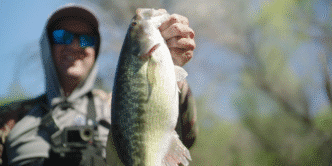
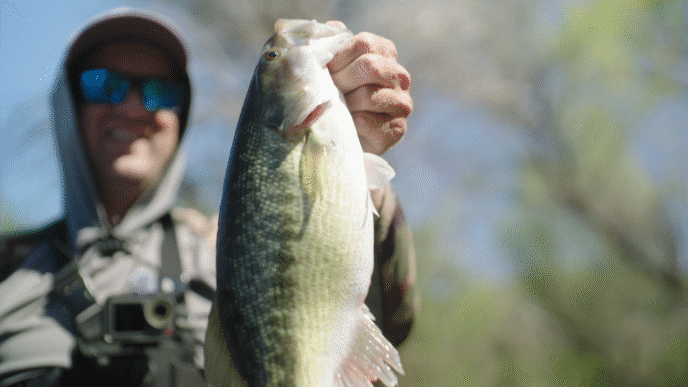
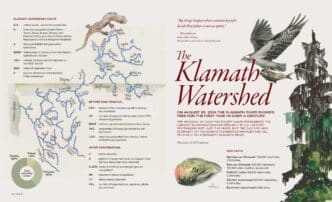
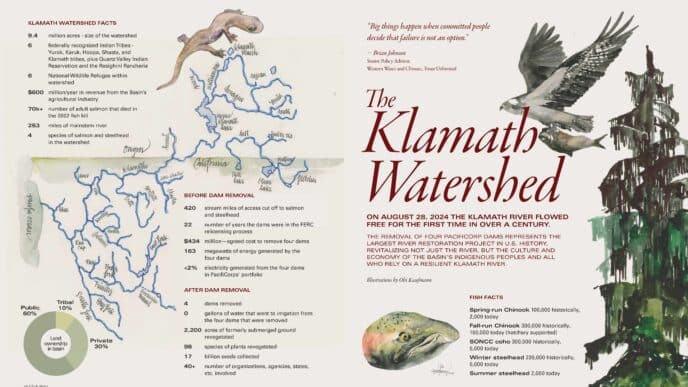
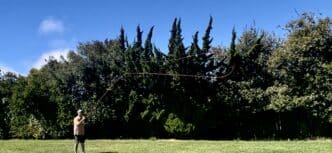
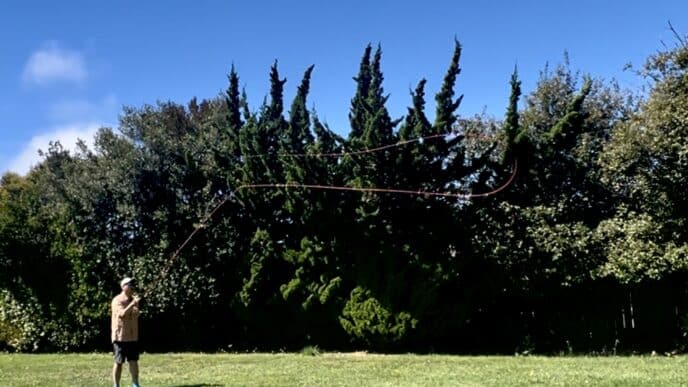
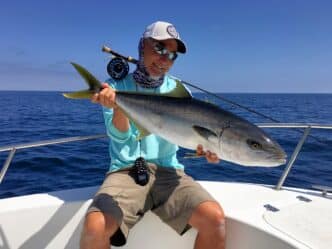
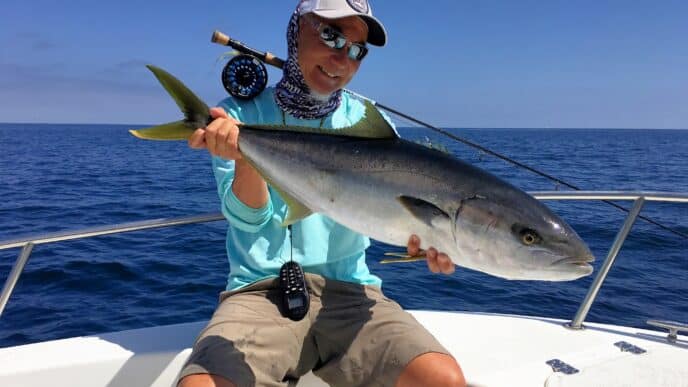
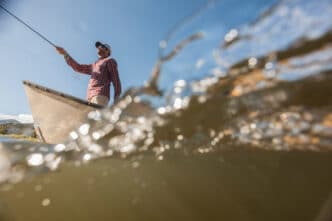
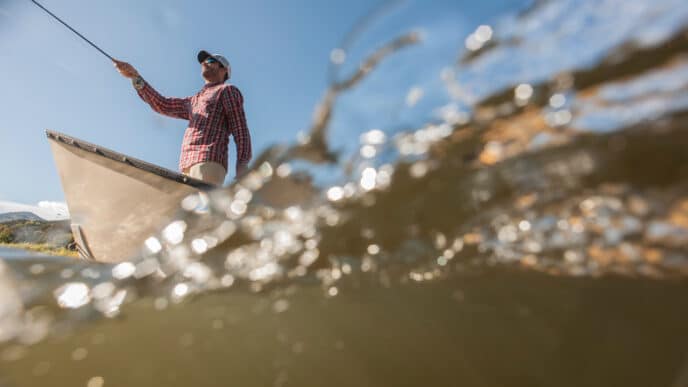
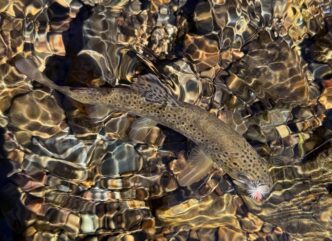
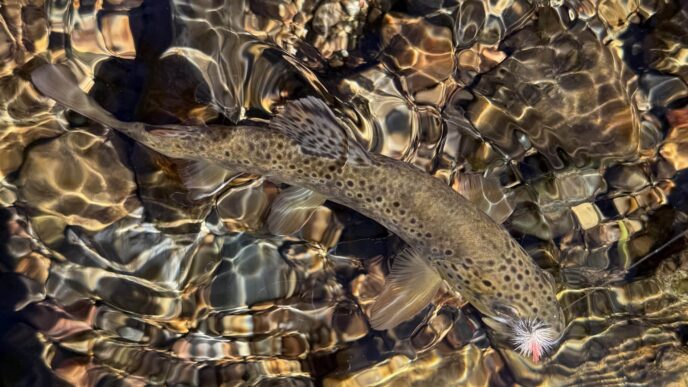
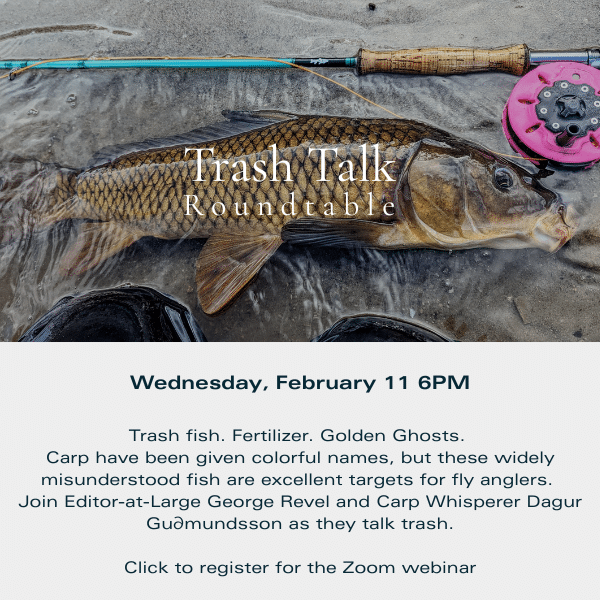
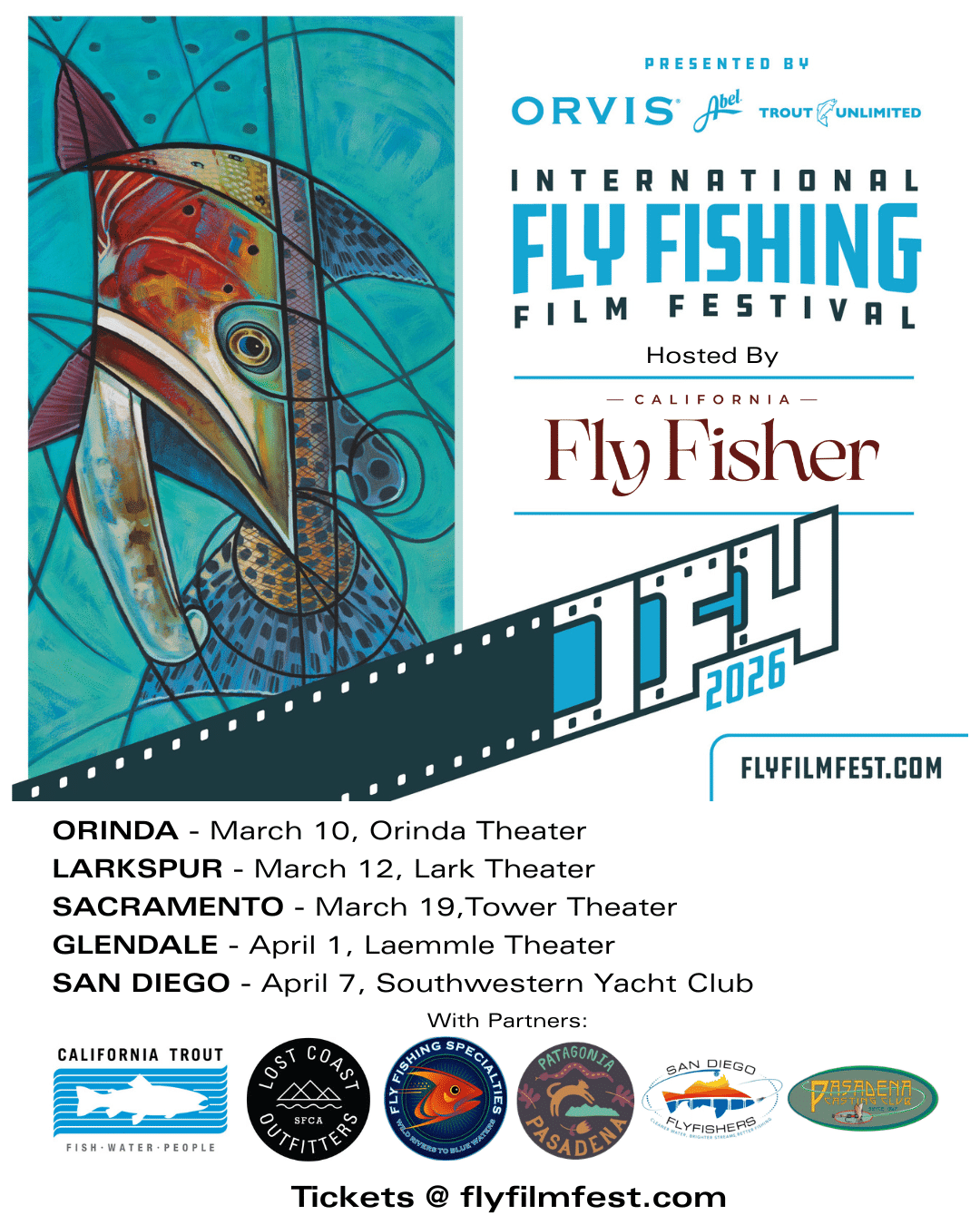
I very much enjoyed reading this. One added note: Check for deer ticks (the ones that transmit Lyme disease) on your gear and person, after you have completed your bushwhacking adventure. For some, that goes without saying.
Thank you, Steve! Yes! A post-bushwhacking tick check is so important. I’d even go so far as to say that checking for those Lyme-carrying hitchhikers is something we anglers should do every time we leave the water, regardless of how much brush we came in contact with. Thanks for the note!